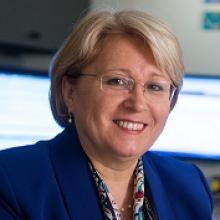Disciplinary Differences in E-learning Instructional Design
Brief Abstract
Disciplinary differences are overlooked in respect of e-learning instructional design, course delivery format, and selecting suitable technology. This synchronous information session will introduce disciplinary differences by illustrating how to apply the Biglan’s framework in the selection of effective e-learning approaches focusing on curriculum content, cognitive purpose, and assessment.
Presenters

Extended Abstract
Session Objectives
At the end of this session, participants will be able to:
- Analyze disciplinary differences based on the Biglan’s framework for the purpose of the selection of effective e-learning approaches focusing on curriculum content, cognitive purpose, and assessment.
- Discuss challenges and opportunities of developing discipline specific e-learning solutions in various subject matters.
e-learning has shown massive growth in the delivery of educational contents in all learning fields for some time. Also, due to the COVID-19 pandemic, we have had a sudden shift to developing more e-learning solutions for many courses and training programs at all levels. However, this sudden transition to an online environment with an unfamiliar mode of teaching has caused frustration to many educators, not knowing how to design and deliver their courses effectively to their target audience. Moreover, disciplinary differences are overlooked in respect of e-learning instructional design, course delivery format, and selecting suitable technology or learning management systems. Educators need to be cognizant of disciplinary differences in e-learning solutions in their educational practices so they can reap benefits in terms of their trainees’ learning and curriculum innovation.
This synchronous information session will introduce disciplinary differences by illustrating how to apply the Biglan’s framework in the selection of effective e-learning approaches focusing on curriculum content, cognitive purpose, and assessment (Four disciplinary groups by Biglan: hard pure, soft pure, hard applied, and soft applied). Based on a given scenario, participants will be invited to discuss the following questions:
- What unique learning opportunities for this specific discipline can apply conveniently to an online teaching situation?
- How can knowledge of disciplinary differences be used to inform the selection, design and integration of appropriate e-learning activities in this e-learning development?
- What are the important issues of assessment in a specific discipline when you use different e-learning modalities?
- What may be some of the unique challenges of developing your e-learning solutions involved in your discipline in the context of e-learning modalities?
In brief, this session will increase participants’ awareness of disciplinary differences and analyzing their own discipline specific constructs to design and develop e-learning solutions at their own institution.
Reference:
Biglan, A. (1973). The characteristics of subject matter in different academic areas. Journal of Applied Psychology, 57(3), 195−203.

